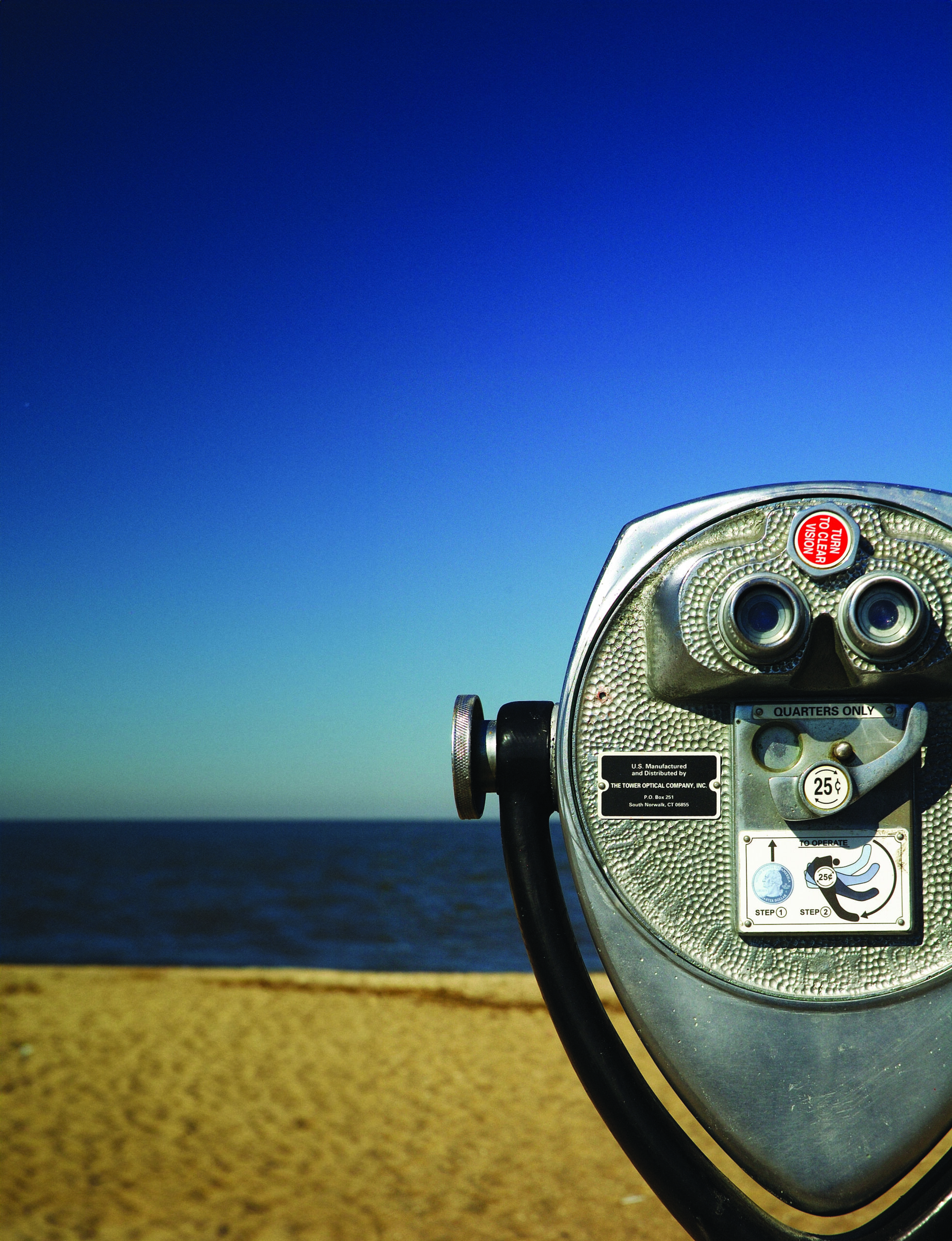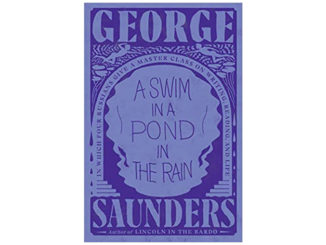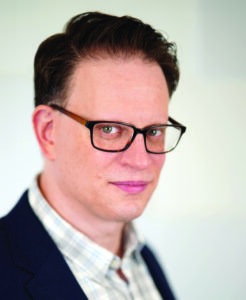
By Neal Sandin, President, 643 Research, Malta, New York, nsandin@643research.com
“I’m going for it,” I said to my wife as I studied a transaction screen on my phone. The next day, we would be on a plane to Prague with an itinerary full of hotel transfers, individual tours, and dinner reservations. It was going to be our first vacation since COVID. But I was especially excited to make this final arrangement: I was upgrading our flight to business class.
Although we didn’t know it at the time, we were part of a trend that had been growing since the COVID-19 pandemic: “revenge travel.”
I first heard this trend described by Darryl Leggieri, president of Discover Saratoga (in New York). He explained that the “revenge” is against the pandemic—the stress, isolation, and frustrations that came with the lockdown. The pandemic also brought a sense of uncertainty and mortality, a reality where people may not get another chance. Travelers want to make up for lost time, not dissimilar to that feeling of FOMO (fear of missing out).
With this article, I will explore revenge travel and other key trends that have transformed the travel and tourism industry since the pandemic. Seismic shifts have changed how people travel, who they go with, what they want to experience, and what they bring back.
I will also explore the latest qualitative research best practices in the travel industry. Specifically, I will discuss how to prevent research bias in recruiting and methodology, how to create space for participants to be vulnerable, and how to conquer the research challenges posed by social media.
Finally, I will share some personal reflections on what makes research in travel and tourism so unique and special.
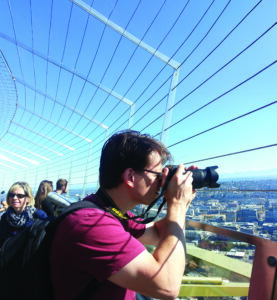 Travel Trends after the Pandemic
Travel Trends after the Pandemic
For travel and tourism, seeing the sights will always be popular. But today, as revenge travel suggests, people are also eager to reclaim the senses of autonomy and human connection that were lost during the pandemic. These deeper needs are manifesting through several key trends:
Why not?
Travelers are investing in more personal and/or unique experiences. People of all backgrounds, circumstances, and budgets are seeking out unique opportunities for road trips, domestic travel, or local outings. This can be as simple as having a certain dessert, trying that local delicacy, or finding a new path to wander.
One conspicuous manifestation of this trend is increased attention to the means of travel. The time in the car, train, or plane is increasingly viewed as a memory-making experience; people want to enjoy the trip, not just the destination.
Michael Rubinstein, owner and director of UpRouteMe, a luxury travel company, noted, “I’ve booked more business class flights for clients in the last six months than I have in the previous two years. All of these have been paid tickets, not on points or miles.”
The more, the merrier
Also emerging from the pandemic is the trend of traveling in groups. People are more inclined to bring their “bubble” with them.
Rubinstein explained, “I’m handling many more multigenerational trips for clients than ever. In part, I think this is indeed due to the pandemic when many grandparents were forced to keep their distance from young grandchildren.”
Vishu Saumya, travel blogger and photographer for Road To Taste, reinforced that point, writing, “Post-COVID, we all realized the value of family, relationships, and health more than ever before.”
Group travel can also bring a sense of novelty to the experience. Helen Watson of The Adelphi Hotel in Saratoga Springs, New York, explained, “In recent years, I’ve gone on vacation with friends—without the spouses. I feel like sometimes people just want to have a different vacation experience. Sometimes, it’s more fun to travel with a group and not just as a couple.” Importantly, this trend is spreading across both personal and business travel.
Let’s stay a few more days
Trips of two to three days are still popular, but extending them to a week or more is also gaining popularity. This is partly driven by the “why not” attitude of wanting to see the sights and experience the location to its fullest.
Becky Harrison, president of Fieldwork East and Fieldwork NYC, observed, “Looking at New York City specifically, we have a lot of international clients that are getting back to in-person research and, in many cases, traveling to the U.S. for the first time since before the pandemic. As a result, we are seeing many clients extending their trip to meet up with family, visit clients, and overall take advantage of their business trip.”
This relates to that sense of uncertainty about the future resulting from the pandemic. Many travelers believe they might not get another chance, so they stay a few days longer. It’s about more than just putting a pin in a map or checking an item off their bucket list; they want to revel in these travel experiences as long as possible.
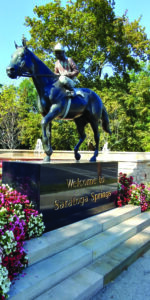 You can reach me by email
You can reach me by email
Before the pandemic, people would often say (or complain) that they were “available by email” even when traveling for leisure. I am certainly guilty of this. Today, however, the distinction between business and personal travel has become even more porous. This is compounded by business travelers bringing their families with them and perhaps extending their trips in turn.
Tiffany Dixon, executive vice president of Murray Hill National, shared her thoughts: “I think since post-COVID, where more people are able to work remotely, it allows them the freedom to travel places as a family while also being able to get their work done via Zoom calls, etc.”
When in Rome
Travelers want to see a location that people actually live in, go to the stores, restaurants, and neighborhoods that locals actually use, and feel a part of a community, albeit briefly. Social media and other influences can commoditize certain experiences (i.e., “Oh, everybody’s seen that . . . ”), making them less special and memorable. Local experiences create a more authentic experience.
Importantly, this trend includes business travelers. Watson noted, “I find that some business travelers are choosing us over the box hotels because they are looking for more of an experience even while conducting business.”
Avoiding the Crowds
Due in part to the perceived urgency to travel, many people (perhaps too many) are traveling, locally/domestically and internationally. Japan, in particular, has been suffering from over-tourism, in some cases, literally erecting walls to block views in the hopes of discouraging tourists. More generally, as people seek to avoid peak and even “shoulder” seasons, their trips are being planned for different times of the year, essentially extending the travel season.
Off the Beaten Track
This reveals a tension: travelers want to get away but also do not want to deal with the crowds of people who are doing the same thing. They are looking for attractions off the beaten path, something unique and even exclusive. Rubinstein stated, “I’ve definitely seen a dramatic increase in clients interested in hiking—across all destinations.” Participating in outdoor activities and excursions is not just about a focus on health and wellness but is yet another facet of “revenge travel” after being trapped inside for so long.
How Travel and Tourism Qualitative Studies Are Changing
As travelers seek to reclaim some of the control they lost during the pandemic, they are spending more money, extending their trips, traveling in larger groups, and actively seeking out unique experiences. Travel and tourism companies, in turn, are innovating to satisfy these travelers. Examples of this include expanding benefit and reward programs and creating more flexibility in the booking process.
These and other innovations are driving the need for new types of qualitative studies.
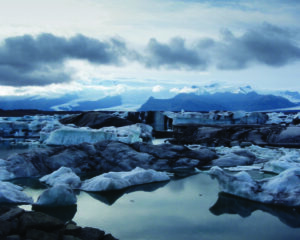
More advertising research focused on revenge travel themes
The traditional online/remote methodologies continue to work quite well for concept and ad testing, whether they involve focus groups or in-depth interviews. Online bulletin boards (asynchronous interviewing) can also be used to great effect. This can include focusing on specific attractions or taglines, or simply understanding a location’s/country’s brand perception.
Interestingly, travel and tourism studies have also been among the first to return to in-person. “In our New York City and New Jersey facilities, we saw the travel and tourism industry to be one of the first sectors back to in-person research,” said Harrison. “Once borders and regulations opened back up, there was a huge backlog of consumers looking to travel and make up for missed family visits and trips. As a travel/tourism brand, what better way to get in front of your customers, right? If you want your customers to visit your property or location in person, then it is imperative to talk to them in person!”
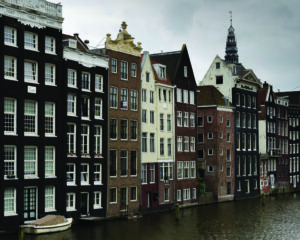 More loyalty program research
More loyalty program research
Taking advantage of these post-pandemic mindsets, credit card companies and airlines have conducted studies exploring rewards programs. Harrison adds, “I think this goes back to how the values of the consumer changed so much during the pandemic. If anything, consumers learned how important it is to take that experience (versus buying a tangible item) and as a result, even more important for rewards programs to better support their customers.”
More studies reflecting the blurred boundaries between traditional travel research approaches
Since the pandemic, travel research projects have become increasingly nuanced, with a shift in the type of consumers who are targeted and what is required of them. For example, some studies might blur the lines between work and personal travel or focus on participants who seek out cultural adventures while traveling with their family and friends. Studies might also ask participants to fill out diaries or complete other activities during their trip.
Best Practices in Travel and Tourism Qualitative Research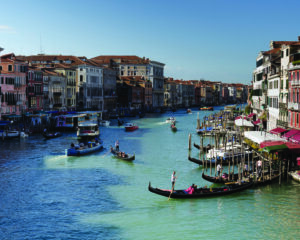
In this changing sector, it is vital for the qualitative researcher to anticipate and prevent challenges. For example, a screener trying to distinguish (perhaps unnecessarily) between personal and business travel can easily become overly long. Another problem is underestimating the time required for participants to complete research tasks while on a trip, such as between business meetings and/or leisure activities. Left unaddressed, challenges like these can lead to frustrated clients not getting the actionable insights they’re seeking and qualitative researchers who sigh audibly and wonder if they should have chosen a different career path.
Make sure research methodology feels natural for participants
When having participants fill out diaries, surveys, or online bulletin boards while traveling, the researcher must consider what participants would normally be doing during their trips. It is not enough that people say during the screening process that they are “willing” to post daily. The danger is in unintentionally altering the participant’s behavior and perceptions when traveling. If they would not post during a typical trip, then the research is actively altering their behavior and introducing a research bias. This, in turn, increases the risks of poor responses or participants quitting the study altogether.
Fortunately, some people post daily on social media, even when traveling. Therefore, instead of spending precious screening time on travel-related minutia, one can focus more on their social media behavior, with the recruiter confirming this directly by reviewing social media accounts. Travel details can be uncovered during fieldwork; finding a participant who will do the tasks in a way that closely resembles their everyday behavior requires a different set of priorities.
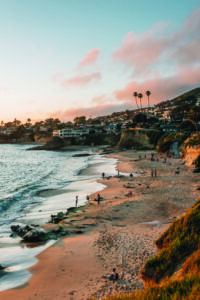
Recreate the dynamics of group travel
How researchers approach the trend of group travel can also unintentionally create bias. Having one member of the group primed for future fieldwork (and possibly tasked with research activities during a trip) can skew the dynamics of that group’s travel. One can imagine the impact if one person repeatedly needs to pause a hike or step away from dinner so they can post to a bulletin board. Not only might it create tension within the travel group, but it will also disrupt the experience that the research is ostensibly trying to capture.
That being said, market research, like physics, is subject to the “observer effect.” Simply measuring or observing something changes—in ways large and small—what is being measured or observed. Nevertheless, minimizing these disturbances is always the goal in physics and (of course) market research.
To that end, possibly including the other travelers in the research, even in small ways, might be beneficial. There is the potential of recreating the original dynamics, yielding richer and more accurate findings by showing the interactions at play from the planning of the trip to its execution to returning home.
Explore Expectations
People who just returned from a trip have a tendency to talk about the big tourist sights immediately. In a group setting, this can evoke competitiveness, embarrassment, or even shame in other participants who might have been unable or unwilling to have the same experiences, perhaps due to differences in travel budgets, available time, or priorities. Moreover, this can create a challenge for the moderator, as once participants move into behavior topics (i.e., what they did), it can be difficult to get them back to how they perceived it.
A fruitful tactic can be found in exploring expectations. Some people may travel to check items off the list; others want a more “off the beaten track” experience with locals, while some simply want to disconnect from their everyday stresses and responsibilities (even if they might still be reachable by email). In other words, what is driving their “Why not?” Is there something that inspired any last-minute upgrades or changes to their itinerary? For example, when doing a UX/UI study, one can explore their expectations when navigating a travel-related interface. In a group setting, other participants will feel less excluded and more valued with less inclination to compare themselves to others as their expressed goals were different from the start.
Look for unexpected delights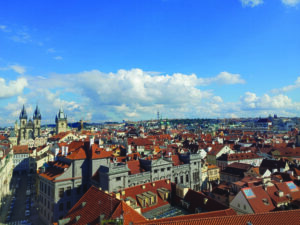
When the conversation moves toward experiences (and meeting, missing, or exceeding expectations), rich findings are there for the taking. This is especially true in discovering surprises, the things that made the trip unique and worth the plane or car ride. Maybe it is not the memory of the Eiffel Tower that makes them smile, but that charming exchange with a local outside a boulangerie (i.e., “When in Rome”). Laddering up from there can yield some nuanced and exciting results.
Tread lightly and explore what is in front of you
It is better to express interest in and explore the answers given (“Can you tell me more about the dinner at that restaurant?”) and tread lightly when seeking new experiences that the participant did not originate (e.g., “What else did you do there?”). That latter type of question can have the unintentional effect of invalidating the participant and their travels. It also primes them to find content to make you (the moderator) happy rather than reflecting on what they normally do or experience when traveling.
Two Key Skills Required for Success
Successful travel studies are the result of several factors, some of which were already mentioned, including being aware of the various trends and finding the right target. But success is also the product of some key moderator skills, including creating space and allowing vulnerability.
Create Space
When conducting qualitative research, the researcher/moderator must allow the participants to be eccentric, idiosyncratic, or simply boring; there is a place for boring in travel (perhaps many people’s ideal—away from the chaos and stress of everyday life).
Being aware of the travel trends listed at the start will be helpful, but it is sometimes best not to assume or even introduce them until the participant does. In this way, travel and tourism research parallels UI/UX studies. After all, people may not always feel a sense of pride about their travels; they may not feel a sense of excitement about future endeavors. Research should not change that feeling, only capture it in all its complex and nuanced glory.
Allow Vulnerability
Traveling, especially personal travel, is a very intimate experience, and sharing requires vulnerability. The “Why not?” can reveal the essence of the participant.
Where a person chooses to travel reflects their upbringing, their current lifestyle and circumstances, and what they hope for in the future. It is not just seeing the sights; it is an exploration both internally and externally, even if the person is not necessarily aware of this. Simply going to a new environment, local or international, by car or plane, by oneself or as a group, changes one’s routines and habits, and exposes new dynamics of their personality (perhaps even changing a few in turn). The qualitative researcher should be aware and sensitive to this.
Even something as “unremarkable” as a walk on a beach can be hugely significant for the participant. A person may ask themselves, “Why can’t every day be like this?” Indeed, the moderator may feel the same way and unintentionally discount this remark. However, for the participant, it may be an opening, a doorway into their life, their hopes and frustrations, and their dreams and regrets. Passing up these seemingly routine experiences or comments can quickly shut down a participant for the rest of the interview to the project’s detriment.
Rewards of Travel Research
The changes and trends within travel and tourism can sometimes appear chaotic. However, there is always a place to go, an avenue to explore, that helps not just the clients but opens my own eyes to the possibilities the world has to offer. Travel and tourism research leaves me with the feeling of wanderlust, of wanting to do and see more.
When the stars align for a travel and tourism project, I can feel like I am traveling with the participants. I feel the excitement in their planning, the anticipation as they travel to the destination, and the satisfaction of finally seeing the Sagrada Familia or eating a Sacher-Torte. I also feel the disappointment of the overcrowded museum or just missing a great tour. The conversation flows effortlessly along the topics and objectives, and I realize that I am very lucky to be doing what I do.
Travel studies are rewarding not only because participants share moving and inspiring stories but also for the practical information they provide. For example, I probably would never have upgraded those plane tickets to business class if I had not interviewed people who had done the same thing. Hearing about their experiences ultimately resulted in a more relaxed and enjoyable trip for my wife and me.
Participants also give me recommendations not just of destinations, but of restaurants, excursions, and hidden local gems (maybe someone will one day tell me about a cute boulangerie in Paris). This generosity has made my subsequent travels much more memorable, and, for that, I’m grateful.
Perhaps most importantly, how people escape their day-to-day lives gives me a better picture of who they are. In some ways, this helps me understand my own life a bit better.
As mentioned earlier, travel and tourism are remarkably sensitive and personal. People are opening up to you regarding a time when they are going to a new location, seeing new people, and eating new food, all outside of their comfort zone. They put in so much effort and work just to make their lives a little bit better, to create and share memories, and to see new ways of living and thinking and approaching the world. Travel and tourism, both personal and business, opens up the world that was closed off for so long. It is freeing and exciting, and I am honored that people share it with me.

